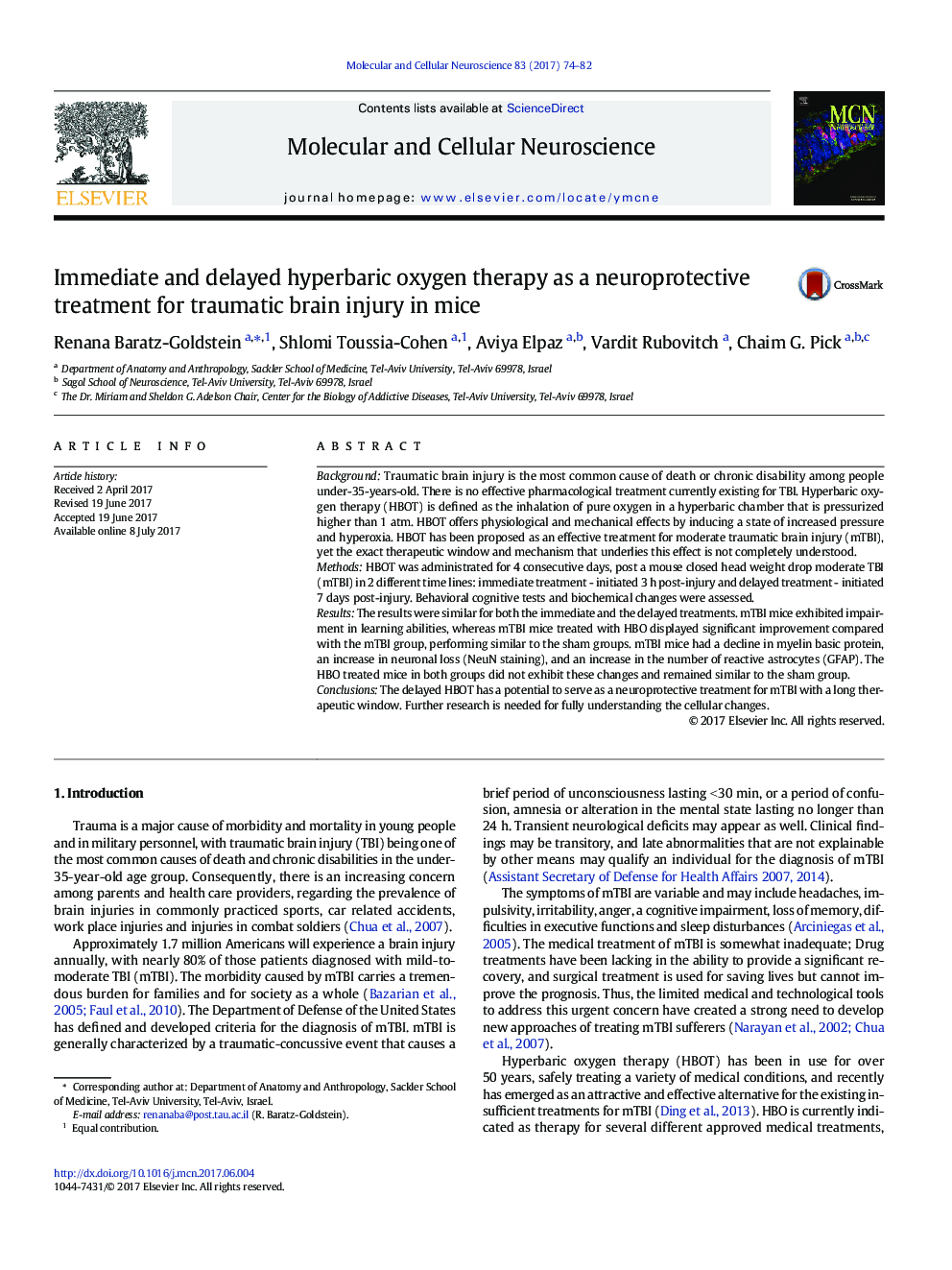| Article ID | Journal | Published Year | Pages | File Type |
|---|---|---|---|---|
| 5534406 | Molecular and Cellular Neuroscience | 2017 | 9 Pages |
â¢Immediate hyperbaric oxygen therapy and delayed hyperbaric oxygen therapy were proposed as a treatment for mTBI.â¢Both immediate and delayed treatments were an effective treatment for mTBI.â¢HBOT improved cognitive performance post-mTBI.â¢HBOT improved biochemical measurements such as NeuN staining, GFAP and MBP.
BackgroundTraumatic brain injury is the most common cause of death or chronic disability among people under-35-years-old. There is no effective pharmacological treatment currently existing for TBI. Hyperbaric oxygen therapy (HBOT) is defined as the inhalation of pure oxygen in a hyperbaric chamber that is pressurized higher than 1Â atm. HBOT offers physiological and mechanical effects by inducing a state of increased pressure and hyperoxia. HBOT has been proposed as an effective treatment for moderate traumatic brain injury (mTBI), yet the exact therapeutic window and mechanism that underlies this effect is not completely understood.MethodsHBOT was administrated for 4 consecutive days, post a mouse closed head weight drop moderate TBI (mTBI) in 2 different time lines: immediate treatment - initiated 3Â h post-injury and delayed treatment - initiated 7Â days post-injury. Behavioral cognitive tests and biochemical changes were assessed.ResultsThe results were similar for both the immediate and the delayed treatments. mTBI mice exhibited impairment in learning abilities, whereas mTBI mice treated with HBO displayed significant improvement compared with the mTBI group, performing similar to the sham groups. mTBI mice had a decline in myelin basic protein, an increase in neuronal loss (NeuN staining), and an increase in the number of reactive astrocytes (GFAP). The HBO treated mice in both groups did not exhibit these changes and remained similar to the sham group.ConclusionsThe delayed HBOT has a potential to serve as a neuroprotective treatment for mTBI with a long therapeutic window. Further research is needed for fully understanding the cellular changes.
